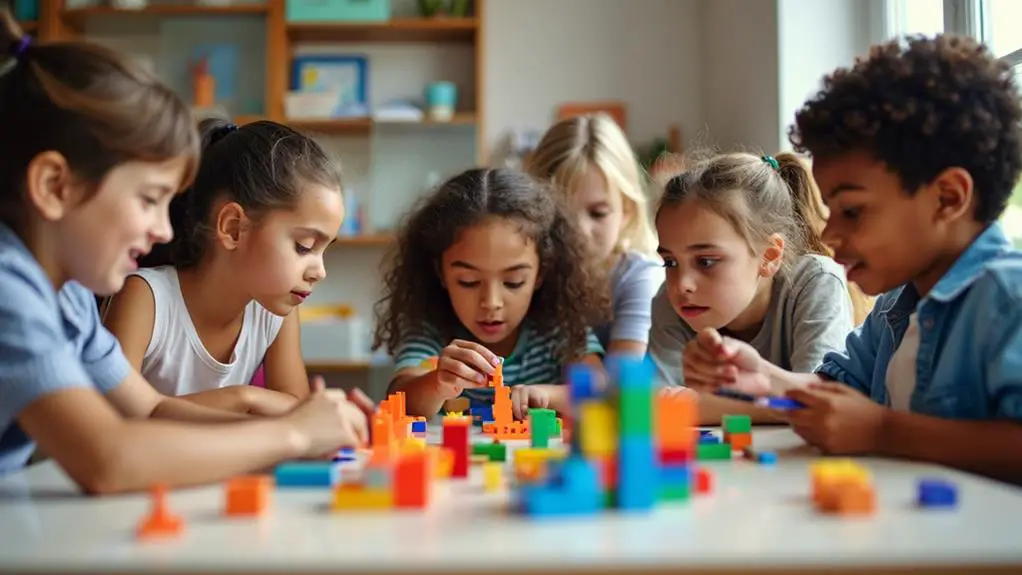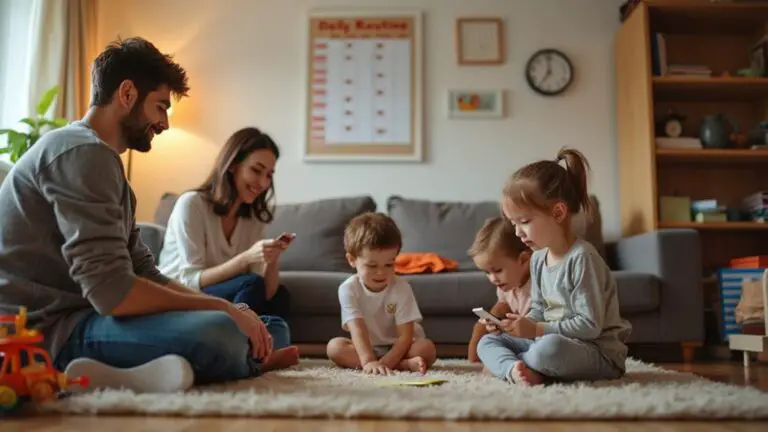Encouraging Critical Thinking in Children
As a parent and educator, I've witnessed firsthand the transformative power of critical thinking in children's development. It's not just about teaching facts; it's about nurturing young minds to question, analyze, and solve problems independently. I've seen shy kids blossom into confident decision-makers and struggling students become innovative thinkers. But how do we effectively foster these essential skills in our fast-paced, information-saturated world? The answer lies in creating an environment that values curiosity and open dialogue. Let's explore some practical strategies that can help shape the next generation of critical thinkers and problem solvers.
Key Takeaways
- Ask open-ended questions to stimulate problem-solving and encourage articulation of reasoning.
- Engage children in imaginative play and role-playing scenarios to develop creative problem-solving skills.
- Introduce strategy games and puzzles to promote logical reasoning and spatial awareness.
- Model decision-making processes to reinforce analytical thinking and self-awareness in children.
- Foster a questioning mindset by encouraging curiosity and creating a safe environment for open discussion.
Importance of Critical Thinking Skills
Critical thinking is a cornerstone of personal and academic growth.
As a parent, I believe it's essential to encourage these important skills in children from early childhood.
Critical thinking enhances problem-solving skills, enabling kids to navigate complex situations effectively.
I've observed that children who develop these abilities tend to achieve greater academic success, as they can analyze information more deeply and make informed decisions.
Nurturing Analytical Abilities at Home
It's possible to foster analytical skills in children right at home through everyday activities and interactions.
I've found that asking open-ended questions during conversations encourages my child to think critically and articulate their reasoning. Engaging them in imaginative play, like role-playing real-world scenarios, helps develop problem-solving skills and the ability to navigate complex situations.
I provide opportunities for my child to experiment with building blocks and puzzles, which enhances spatial awareness and critical thinking. Encouraging self-awareness by allowing them to reflect on their thought processes reinforces analytical thinking and decision-making abilities.
I also model critical thinking by verbalizing my own decision-making processes during daily activities. By incorporating these strategies into our routine, I'm nurturing my child's analytical abilities and supporting their overall childhood development.
Engaging Activities for Young Minds

Building on the foundation of analytical skills at home, we can explore specific activities that engage young minds and foster critical thinking.
To help children solve problems and think critically, I encourage open-ended conversations and thought-provoking questions. I also teach children to play strategy games like Monopoly, which build critical thinking and logical reasoning.
Role-playing real-world scenarios is another effective way to encourage children to think creatively and devise solutions. I've found that building with blocks promotes spatial awareness and innovative thinking, while arts and crafts nurture creativity and complex idea expression.
Fostering a Questioning Mindset
Fostering a questioning mindset is a cornerstone of developing critical thinking skills in children. I've found that encouraging a child to ask "why" and explore real-life scenarios helps them build analytical skills and curiosity.
By creating a safe environment where they feel comfortable expressing their thoughts, I'm nurturing their natural inquisitiveness. I make it a point to engage them in discussions about current events and everyday situations, prompting them to contemplate different perspectives and problem-solving solutions.
This approach not only enhances their critical thinking abilities but also cultivates a lifelong love for learning. By challenging them with open-ended questions, I'm helping them develop the tools they need to navigate complex ideas and situations.
Ultimately, fostering a questioning mindset equips children with invaluable skills for their future.
Conclusion
I've seen firsthand how critical thinking empowers children. By nurturing these skills at home and in schools, we're equipping them for future challenges. It's not just about asking questions; it's about fostering curiosity and open-mindedness. Through engaging activities and thoughtful discussions, we're helping kids develop analytical abilities that'll serve them well throughout life. Let's continue to encourage our children to think critically, ask why, and explore the world around them.







